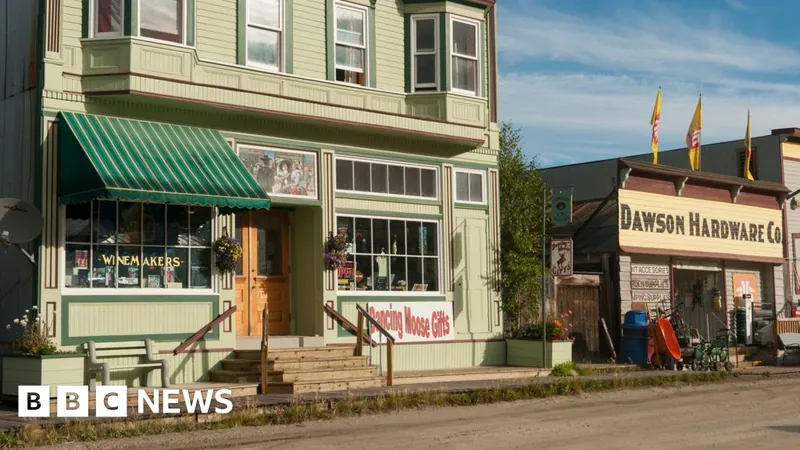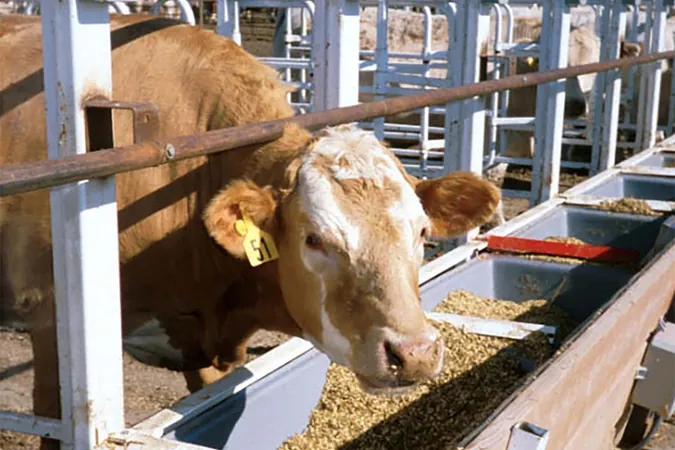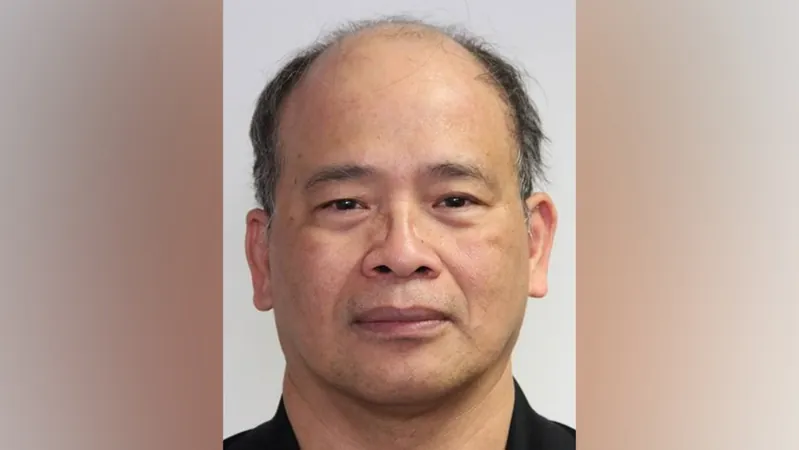
Dawson City Breaks Tradition: New Oath Option Reflects Changing Values on Indigenous Rights
2024-11-30
Author: Noah
Introduction
In a groundbreaking decision that reflects evolving societal values, the Yukon territory of Canada has amended its rules for newly elected municipal officials. This change permits them to take an oath of allegiance to the Canadian constitution instead of swearing loyalty to the British Crown, a move that addresses concerns around historical injustices faced by Indigenous peoples.
Background of the Decision
This shift follows the newly elected council of Dawson City’s refusal to take the King’s oath—a commitment to His Majesty King Charles III—in solidarity with an Indigenous council member who expressed unease about the Crown's troubled legacy in Canada. This act of defiance temporarily halted the council's ability to govern, raising urgent questions about the implications for the council's legitimacy and functionality.
Government's Announcement
On Friday, the Yukon government announced this significant law adjustment, a decision celebrated by many in Dawson City, which has a population of approximately 2,400 residents. Richard Mostyn, the Yukon Minister of Community Services, emphasized that this amendment allows elected officials to make a pledge that resonates with the modern values and cultural identities of their constituents.
Historical Context
Traditionally, Canadian officials are mandated to take an oath affirming allegiance to the Crown, a reflection of Canada's status as a Commonwealth nation with colonial roots. The original stipulation required newly elected officials to take this oath within 40 days of their election, creating a pressing deadline for Dawson City's council, which faced a potential nullification of their election results if they failed to comply.
Indigenous Perspectives
Councillor Darwyn Lynn, representing the Tr'ondëk Hwëch'in First Nation, articulated his discomfort with the traditional oath, stating that he grapples with Canada's fraught history involving Indigenous communities. He noted, “I read it probably about 15 times, and it didn’t get any easier to do.” This reluctance to pledge allegiance highlights the complex relationship between the Crown and Indigenous peoples, propelling necessary discussions about Canada’s colonial legacy.
Community Impact and Discussions
The dialogue surrounding this decision has not just impacted Dawson City but has reverberated throughout the Yukon territory, sparking balanced discussions among residents. Lynn remarked on the importance of allowing diverse opinions within the community, appreciating the ongoing conversations about history and identity.
Comparison to Other Legislative Changes
The new option for an Oath of Allegiance is not entirely unprecedented; previous legislative changes have occurred in Canada. Last year, Quebec’s government removed the necessity for its elected officials to take an oath to the monarchy, labeling it “a relic from the past.” However, despite these progressive changes at local and provincial levels, the oath still stands as a requirement for members of Canada’s national parliament and the majority of provincial legislatures.
Conclusion
As Dawson City council members prepare to take their oaths, whether to the Crown or the constitution, they find themselves at the forefront of a much larger narrative about reconciliation and the redefinition of allegiance in modern Canada. This moment could very well mark the beginning of a shift in how governance is viewed in relation to the rights of Indigenous peoples, setting a precedent for other communities across the nation.









 Brasil (PT)
Brasil (PT)
 Canada (EN)
Canada (EN)
 Chile (ES)
Chile (ES)
 España (ES)
España (ES)
 France (FR)
France (FR)
 Hong Kong (EN)
Hong Kong (EN)
 Italia (IT)
Italia (IT)
 日本 (JA)
日本 (JA)
 Magyarország (HU)
Magyarország (HU)
 Norge (NO)
Norge (NO)
 Polska (PL)
Polska (PL)
 Schweiz (DE)
Schweiz (DE)
 Singapore (EN)
Singapore (EN)
 Sverige (SV)
Sverige (SV)
 Suomi (FI)
Suomi (FI)
 Türkiye (TR)
Türkiye (TR)